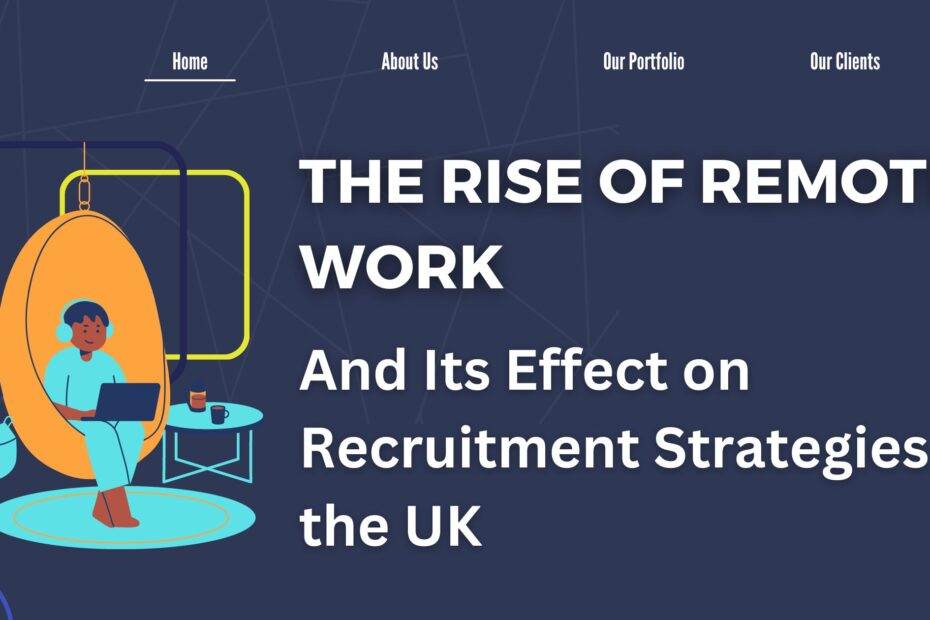The rise of remote work has had an essential effect on UK hiring strategies, transforming how businesses attract, recruit, and retain talent. The acceptance of remote work has accelerated due to technological advancements, shifting employee preferences, and international events like the COVID-19 pandemic.
Here’s how remote work has affected recruitment strategies in the UK:
Expanded Talent Pool
Companies can now access a much larger talent pool thanks to remote work. Employers are no longer limited by geography, allowing them to recruit top talent across the UK and globally. As a result, competition for skilled professionals has increased, as has the emphasis on skills-based hiring rather than proximity.
Flexible Work Arrangements
Companies’ recruitment strategies have evolved to accommodate different kinds of flexible work arrangements, such as fully remote, hybrid, or flexible office days. Job seekers now prioritise work-life balance and flexibility, prompting employers to highlight these benefits as part of their value proposition.
Virtual Recruitment Process
The hiring process has become more virtual and technologically advanced. Video interviews, virtual job fairs, and online skill assessments are now commonplace in the hiring technique. It has reduced the need for in-person interactions and shortened recruitment timelines.
Digital Onboarding
As remote hiring grows in popularity, businesses have put money into digital onboarding procedures to ensure new hires can fit in easily with the workflows and culture of the organisation, even when working remotely.
Emphasis on Communication and Collaboration Tools
Because of telecommuting, efficient communication and collaboration tools are now a top priority for businesses. Nowadays, hiring managers give candidates who are familiar with these technologies priority.
Evolving Company Culture:
Companies have revised their corporate cultures to include remote workers more fully. Finding candidates who share the company’s values and can succeed in a remote or hybrid work environment is the primary objective of contemporary hiring methods.
Performance Evaluation and Measurement
New techniques for measuring and evaluating performance are now necessary because of remote work. Companies are creating outcome-based performance metrics to fairly evaluate remote workers, which may affect how applicants are assessed during the hiring process.
Impact on Real Estate
Due to the boost in work from Home, some businesses are reevaluating their need for office space. This change might impact how companies promote their physical workspaces as assets when hiring new employees.
Evolving Company Culture
Companies have reshaped their corporate cultures to be more welcoming to remote workers. Candidates who align with the company’s values and can thrive in a remote or hybrid work environment are now the focus of recruitment strategies.
Performance Evaluation and Measurement:
Remote work has necessitated the development of new techniques for evaluation and measurement. Companies are developing outcome-based performance metrics to fairly evaluate remote employees, which may influence how candidates perform during the recruitment process.
Retention and Employee Engagement
The significance of effective employee engagement and retention strategies has been made clear by remote work. Employers are putting funds into programmes to keep their remote workers connected, engaged, and committed to the company’s goals.
Competitive Compensation
The shift to remote work has raised concerns about how compensation is determined. Companies are adjusting their compensation strategies to account for differences in the cost of living across the country, which affects how they approach recruitment negotiations.
Furthermore, the rise of remote work in the United Kingdom has resulted in significant changes in recruitment strategies. Companies are changing how they acquire, onboard, and retain talent to succeed in this new era of work as they adapt to a more diverse and adaptable workforce.
